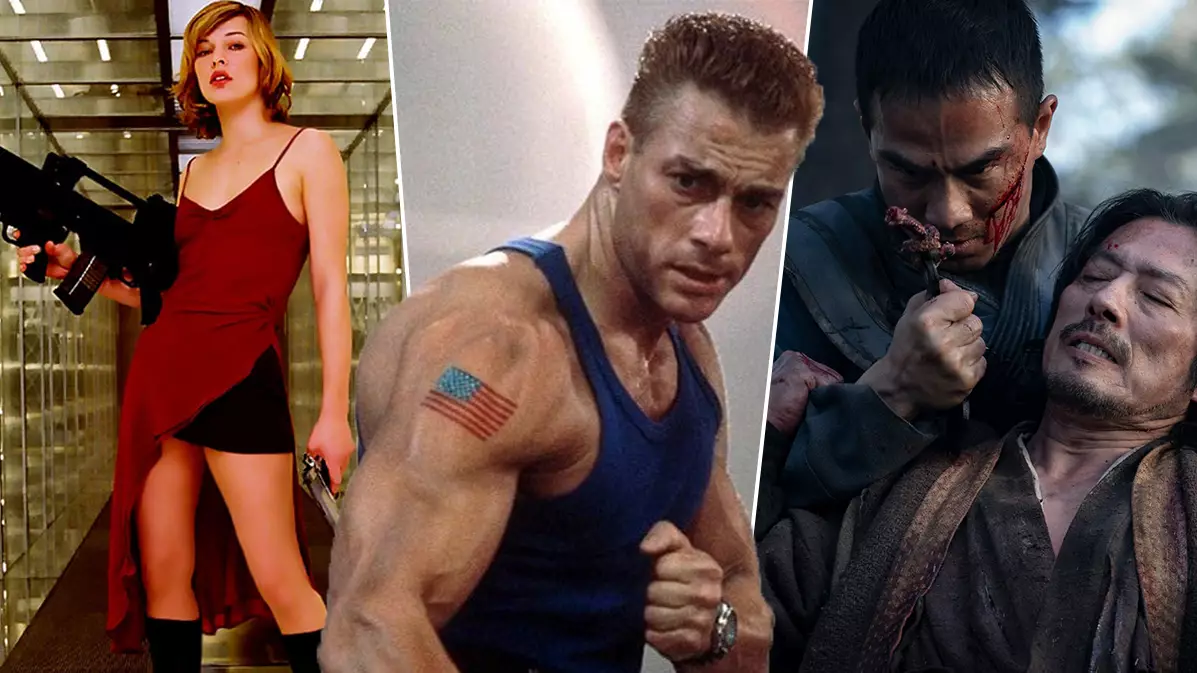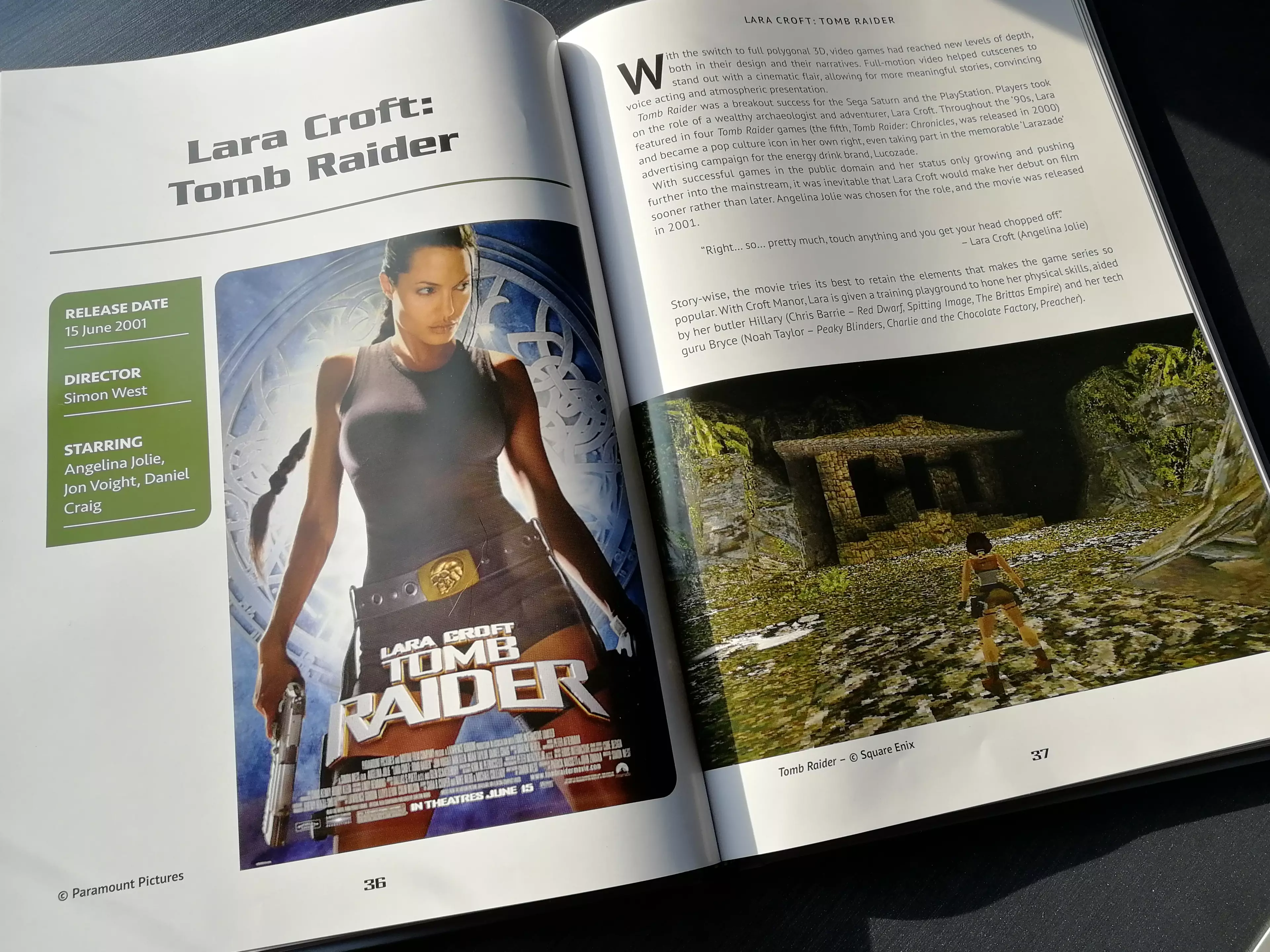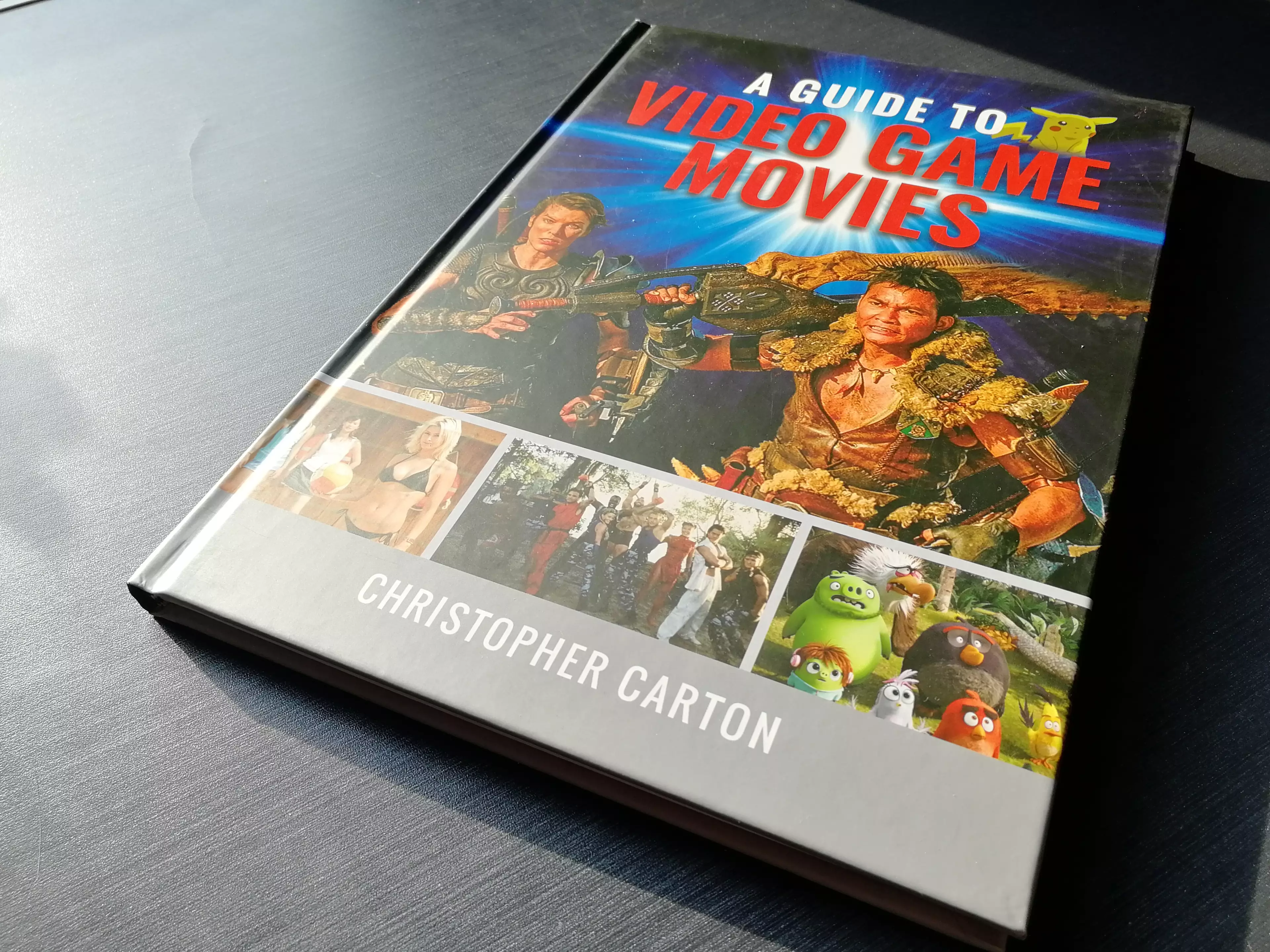
It's fair to say that movies based on video games have a... mixed reputation. For every just-about-average flick - say, for example, for forgettable fun of 2020's Sonic the Hedgehog, or 2010's Prince of Persia: The Sands of Time - there's something utterly wretched, like 2016's Warcraft, 2008's Max Payne, or anything associated with Uwe Boll.
For writer Christopher Carton, however, movies based on video games are a big deal - such a big deal that he's authored a whole book on the acquired-taste experiences, smartly titled A Guide To Video Game Movies. Within its 192 pages you'll find the most comprehensive history yet on these accursed adaptations, as Carton moves from films about video games - like 1982's Tron and 1989's Nintendo-fan-fiction stinker The Wizard - to the big-screen debuts of Mario and Luigi, Ryu and Ken, and the Lee brothers... What do you mean you've never watched 1994's Double Dragon, also starring the T-1000 himself, Robert Patrick? You wouldn't call it a career high, but you may need to be somewhat high yourself to get any enjoyment out of it.
Seriously, check out the weirdness of 1993's Super Mario Bros. in the video below...
Moving on, the history begins properly with 1993's Super Mario Bros., featuring the late Bob Hoskins as the moustachioed Nintendo mascot. While commonly considered a flop, there's a naive charm to co-directors Rocky Morton and Annabel Jankel's picture which only feels more distinct the more time passes. In a way, its greatest strength is that it didn't stick faithfully to the source material, taking some out-there creative liberties with depictions of goombas and Bowser aka President Koopa himself, played by Dennis Hopper.
Carton says there are "plenty of reasons to catch this flick", and throughout A Guide to Video Game Movies he highlights the pros over the cons on almost every entry. Here, he praises the movie's "surreal tone, campy humour" and its array of effects and animatronics. He also notes that Nintendo is having a second crack at taking Mario from Switches to the silver screen, as an animated movie is in production now and supposedly releasing at the end of 2022.

Flicking through the decades, readers are sure to find something in here that they never knew existed. Yes, 1994's Street Fighter gets the attention it deserves - which is to say, Jean-Claude Van Damme might have been off his face for its filming, but the film's goofy and good hearted enough to stand up to a fresh viewing in the here and now. The relatively recent Mortal Kombat and Monster Hunter are afforded the kind of coverage their high profiles warrant. But 2003's House of the Dead? 2006's Bloodrayne? 2008's Far Cry? These could easily have been overlooked by anyone with only passing interest in video games. They're not video nasties in the 1980s sense of the term, full of guns and gore and viscera (well, a bit) - but they're repugnant productions linked by one man: the aforementioned director Uwe Boll, whose game-to-movie CV should be buried under 16 feet of concrete alongside all copies of these terrible films. "It's a struggle to believe it will please fans of the game," Carton writes of Far Cry - which is one way of saying it's absolutely worth nobody's time.

What is, however, is this book - which I'm certain will have readers revisiting older gaming movies, or checking out ones they'd completely missed before. Did you know there's a Professor Layton movie, ...and the Eternal Diva? You do now. And Werewolves Within? It's on Netflix, you should watch it, I did. Carton's work here has niche appeal, no doubt about that. And you'll be amazed by how many Resident Evil movies there are now (six, discounting the 2021 reboot release Welcome to Raccoon City, which oddly is only mentioned in one line at the end of Resident Evil: The Final Chapter's entry when it probably warranted a full inclusion of its own). But there's a lot of positivity on these pages, a real zeal that comes from wanting these things to be better than they usually are, and finding the good in them despite prevalent opinions to the contrary largely born from Wikipedia summaries and top-10 lists.
And that enthusiasm is really worth celebrating, and worth your time digging into. A lot of talented people put a lot of hard work into a lot of these movies, releases that are so swiftly trashed before they're watched; but Carton's book might shift a few mindsets, and possibly open readers up to giving some once-thought trainwrecks a second chance. I'm not saying they'll be good, if you watched them now. (And look, nobody should ever sit through Postal, Dead or Alive or The King of Fighters if they don't have to.) But in a lot of cases here, the reality is rather brighter than the box office takings and the Rotten Tomatoes consensus.
A Guide To Video Game Movies is available now from the publisher Pen & Sword Books, and all good bookstores.
Featured Image Credit: Pathé Distribution, Columbia TriStar, Warner Bros. PicturesTopics: Sonic, Super Mario, Resident Evil, TV And Movies